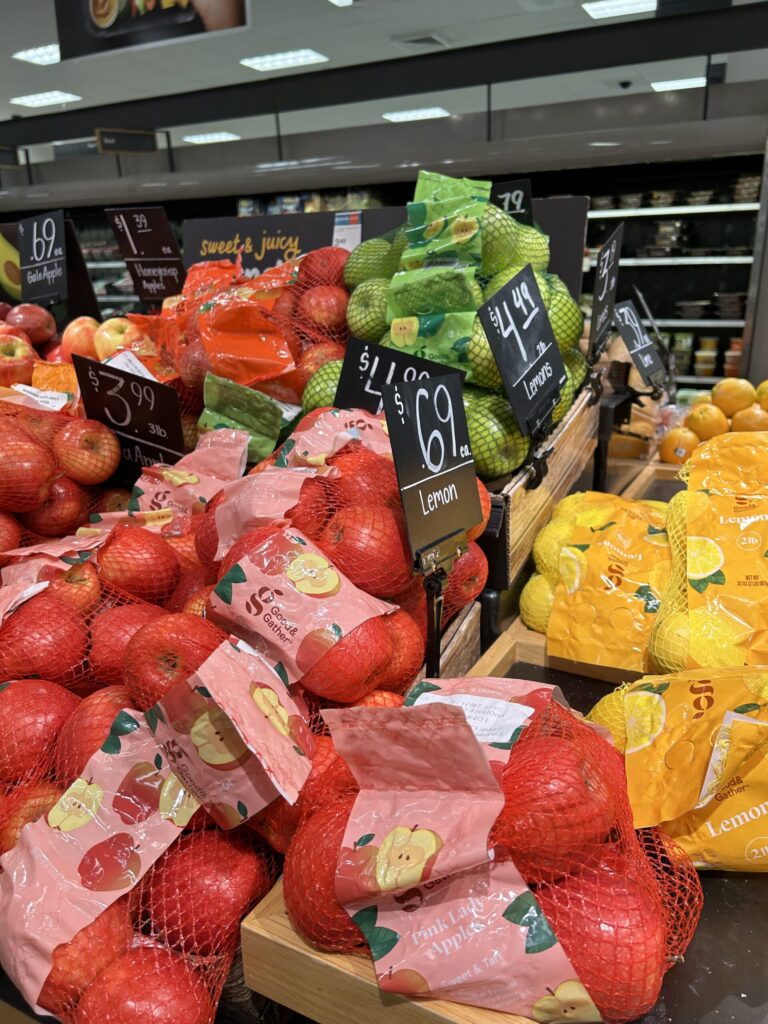OKLAHOMA CITY – A Clinton woman was heartbroken when she saw students throwing out cafeteria leftovers every day.
Sally James, 70, who used to work in a public school cafeteria, said the amount of food thrown away every day is hard to see, especially for seniors who have to choose between buying groceries or medicine, she said.
James currently works as the head chef at Mission House, a nonprofit organization in Clinton, where meals are one of the services offered.
James said her goal is to feed the hungry in the community.
“It just breaks my heart to think that that family, that child, that food that day, that milk, that juice, they may not have had anything to eat over the weekend,” James said.
HB 1542 went into effect in November.
The bill, authored by Republican Rep. Anthony Moore of Clinton, would allow restaurants and public school cafeterias to donate food without fear of liability, with exceptions for negligence.
For the Mission House, James said the law has allowed it to meet nearly double the demand: In May, the Mission House served 1,328 dinners, he said.
“And now we’re able to make food boxes and distribute them and put them to use and give them to families and people on the street,” she said.
Both Clinton Public Schools and neighboring Arapahoe-Butler Public Schools are donating leftover cafeteria food, James said.
Clinton Public Schools Superintendent Tyler Bridges said the district began making donations in November.
“Generally speaking, there’s always going to be things that we overproduce or overbuy and that end up spoiling, and that’s stuff that in the past we would have had to basically throw away, and now we don’t have to,” Bridges said. “So that’s obviously a great thing.”
Bridges, a close friend of Moore’s, said it made sense for Clinton Public Schools to be one of the first school districts to begin donating food.
Bridges said the main things the district donates are milk, fruits and vegetables. Prepared meals are not a typical donation, he said.
In February, the Arby’s Foundation donated about $21,000 to help pay off Clinton students’ lunch debt.
Bridges said despite the obvious need for food by students in the district, they are being given priority, only donating unused or perishable food.
Bridges said that when the school year starts in the fall, Clinton Public Schools will become a community-eligible district, meaning all students will be eligible for free breakfast and lunch, regardless of economic situation. Currently, 85% of students in the district receive free or reduced lunch, he said.
Jay Edelen, superintendent of Arapahoe-Butler Public Schools, said his district and Clinton Public Schools use the same food service company, Opaa! Food Management, and that the company is helping develop a food donation plan.
Edelen said cooked leftovers are donated during the week, and fresh fruit and salads are collected after lunch on Fridays and delivered to the Mission House on the weekend before they expire.
Despite local participation, the food donation process is not widespread, according to spokespeople for the Tulsa and Oklahoma City organizations.
A spokesperson said many of the larger food banks and soup kitchens don’t partner with restaurants to donate prepared meals.
Oklahoma Regional Food Bank spokeswoman Cathy Neslen said the system isn’t practical for food banks.
She said the regional food bank doesn’t accept donations from restaurants or school cafeterias. Instead, some of its local partners have received donations from chains like Starbucks and Panera. Still, she said the donations they do receive tend to be packaged foods.
Grace Rescue Mission, an Oklahoma City-based emergency shelter for men, and Jesus House, a nonprofit that provides supplies, food and clothing to people with addictions, receive little to no donations from restaurants, spokesmen said.
Tulsa Day Center, a nonprofit that meets basic needs, isn’t accepting donations from restaurants, and Iron Gate, a nonprofit that provides meals to hungry people in Tulsa, isn’t regularly receiving restaurant-prepared meals, said executive director Carrie Henderson.
“We have gained nothing [in] “For a while, we had to go through a lot with COVID,” Henderson said. “We were in a COVID-like situation because restaurants would order things and then they’d be closed for one reason or another and things like that.”
She said Iron Gate will primarily be receiving large amounts of surplus food during the pandemic.
In crafting his bill, Moore said he hopes it will address the state’s high rates of food insecurity.
“It’s something so simple, so obvious, and frankly, I couldn’t believe it hadn’t been done before. I realized it was still an issue and a barrier to people helping people, and I wanted to remove those barriers,” Moore said.
Feeding America, a national organization that fights hunger, reports that one in six Oklahomans faces hunger, including one in four children in the state.
While it hasn’t been implemented on a large scale yet, James said the additional donation will make a big difference for the Mission House.
“Food is really expensive right now,” James says. “It’s hard to buy a salad, so my kids have to buy fresh vegetables, [the school districts] Bring us all along.”
Get morning headlines delivered to your inbox
subscribe


